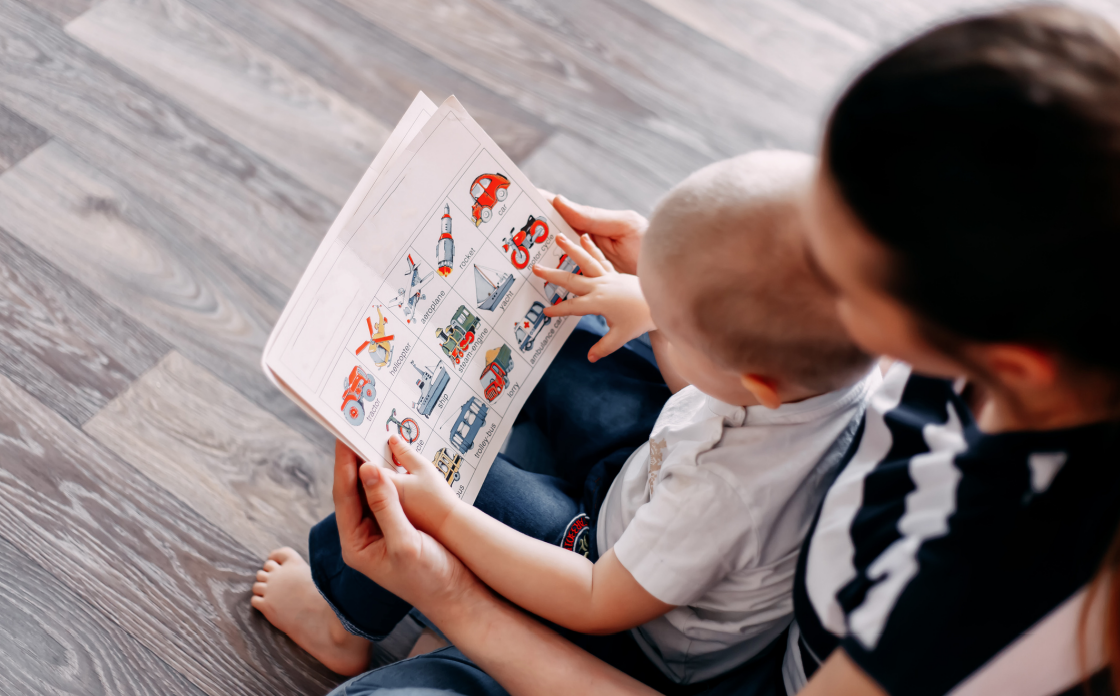Both research and experience teach us that reading helps develop a child’s intellectual capacity since reading serves as a cognitive stimulation and brain exercise. In light of these benefits, parents are encouraged to read to their children at an early age.
According to Statista, more than 40% of parents started reading aloud to their children as early as less than three months old. These parents understood the importance and benefit of reading to their children, which is why they started doing it as early as possible.
In this article, you will learn some of the reasons why parents should start reading to their children at an early age.
Why You Should Read to Your Child

Reading Facilitates Bonding
Reading to your children goes beyond cognitive development because it facilitates bonding. Reading to or with your child can help foster a solid parent-child relationship.
Unknown to most parents, children feel secure when their parents read to them. The very process of reading to your child helps them pick up your emotional cues, such as your gesture and tone of voice.
Reading Helps Develop Listening Skills
A child develops a certain level of comprehension as parents continue to read aloud to their children. As parents read to their children, they are likely to pay attention or listen.
According to experts, reading books helps children develop their language and listening skills. And in turn, these reading sessions prepare them to comprehend written words.
Reading Helps Develop Cognitive and Language Skills
In a 2013 study, it was revealed that babies who experienced reading sessions with their caregivers score higher in language skills and cognitive development. These skills include problem-solving, auditory processing, logic, and reasoning.
A separate 2018 study highlighted that verbal interactions between parents and young children promotes higher language and intelligence quotient (IQ) scores. This further supports the importance of parents reading to their children while they are still young.
Reading Helps Develop Social and Emotional Function
In particular, a mother's voice is considered one of the most salient voices in a child's life. Infants can identify their mother's voice as early as the first day of their lives. This type of stimulus guides an infants' emotional and social development.
Reading Helps Expand Vocabulary
It is best to start reading to your children at an early age because they can pick up a language as early as the infancy stage. Infancy is the period of most rapid growth after birth. Hence, it is the best starting point to introduce your child to new words to expand your child's vocabulary.
A study published by the National Library of Medicine stated that parents who read 1 picture book with their children daily introduce their children to over 70,000 words each year. If continued up to kindergarten, a child will be exposed to around 1.4 million more terms than those whose parents have not read to them.
Reading Helps Improve Communication Skills
When you read to your children, they are likely to express positive emotions in response to your presence or to what you are reading. Children gain valuable communication skills as they listen to the dynamics of the story and the interaction of characters.
Reading Helps Children Deal with Stress
Since your reading session serves as your bonding moment, children will feel more relaxed while learning the valuable skill of listening and comprehension. It helps prepare your children, especially those not yet attending school. Reading to your children can help them prepare themselves emotionally for any potential stressful impact of assignments.
Reading Helps Develop Concentration
Consistently reading to your child helps develop their concentration or attention span. It helps your child learn to stay put, stay still, and listen to you while you read them a story for a considerable period of time. It is good training for children to help them prepare for their schooling as it requires concentration and discipline.
When Should You Start Reading to Your Child?

There are so many benefits to reading to your child and it is best to start reading to them as early as possible. There is really no strict rule when it comes to what age you should start reading to your children.
Experts suggest that reading with your children should start as early as four months because it is during this stage that your child experiences rapid development.
Children From a Young Age Depend on Other People to Learn

Reading to your child at a young age helps your child develop his mental and emotional skills. Since they are highly dependent on adults when it comes to learning new things, it is best to spend time with your children. You should remember that the involvement of parents in children's education, formal or informal, leads to better learning outcomes.
Reading to your child facilitates cognitive development and bonding. Use this moment to introduce to your child new concepts and lessons. By making it a habit to immerse your child in reading sessions, you are inevitably enhancing their learning capabilities.
Parents with no prior experience reading to their children should start with short and simple stories. For starters, you can use storybooks with vivid imagery, rhymes, and phrases young children can quickly identify and remember.
Once children have outgrown those types of books, you can start introducing books with regular pages. This transition is more effective for kids between 24 to 36 months. As much as possible, provide your kids with a stimulating environment to nurture learning.
Cultivate Learning Through Reading
At a early age, children are receptive and more open to learning. Parents should start reading to their children as early as possible.
The infancy stage is an ideal stage to begin your child's learning process. Reading to your children helps develop their cognitive aptitude and listening skills.
By making it a habit to read to your children constantly, you are facilitating learning and cultivating a solid parent-child relationship.
Frequently Asked Questions (FAQs)
Is reading important for child development?
Yes, reading is important for child development. It helps children develop communication skills, literacy skills, critical thinking skills, learn to deal with stress, language development, and develop concentration. Additionally, reading to your child early helps your child develop his mental and emotional skills. Children learn best when their parents are involved in their education, formal or informal.
How can I incorporate reading aloud in my child's life?
There are many ways to incorporate reading aloud in your child's life. You can start by reading to them every night before bed, taking them to the library, or reading with them while they do other activities such as eating breakfast or taking a bath. Additionally, you can use technology to help make reading more engaging for your child. There are many ways to incorporate reading into your young readers. Having reading skills at an early age will help your child be successful in school and life.
How can I start my children reading?
If you want to start your children reading, the best way is to do it is to make it a part of your daily routine. You can begin reading when they are very young children. You can begin reading stories to them or telling them stories. A child's imagination is very powerful, and they will be able to understand the concepts you are teaching them. Additionally, reading to children will help their brain development, which is one of the benefits of reading. As they grow older they will experience independent reading and read on their own.
How do I teach my children phonemic awareness?
This is the ability to hear, identify, and manipulate individual sounds in spoken words. It is a critical skill for beginning readers. To teach your children this awareness, you can start by having them listen to stories on tape or CD. As they listen, point out different words and have them repeat after you. Additionally, you can Play sound games with your children. For example, you can say a word and have them identify the beginning sound of the word. Also, you can sing songs with your children. Singing songs will help with new brain connections. There are many games and activities that you can do to teach your children phonemic awareness. The important thing is to make it fun for them so they will want to learn.
How does reading help with my child's social skills?
Reading helps with social skills in many ways. It helps children develop communication skills, literacy skills, and critical thinking skills. Additionally, reading to your kid early helps your child develop his mental and emotional skills. As they read, and as you read to them, they will develop background knowledge of the world around them. This will help them understand and relate to others. Additionally, reading helps children develop empathy. When they see someone in a book going through a difficult situation, they can understand and feel for that character. This is an important social skill that will help them throughout their life.
What book should I read if my child has a short attention span?
If your child has a short attention span, you can try reading books that are filled with short stories and have more pictures. Moreover, picture books will help with your child's visual imagery. Additionally, you can try using technology to help make reading more engaging for your child. There are many ways to incorporate reading into your young readers. Having reading skills at an early age will help your child be successful in school and life.
Is it good to take your child to the local library?
Yes, taking your child to the library is a great way to get them interested in reading. At the library, they can explore different books and find ones that they are interested in. Additionally, the library offers many programs for children that can help with their reading skills. These programs usually have games and activities that will make reading more fun for your child. Additionally, the library is a great place to find resources for parents who want to help their child improve their reading skills.